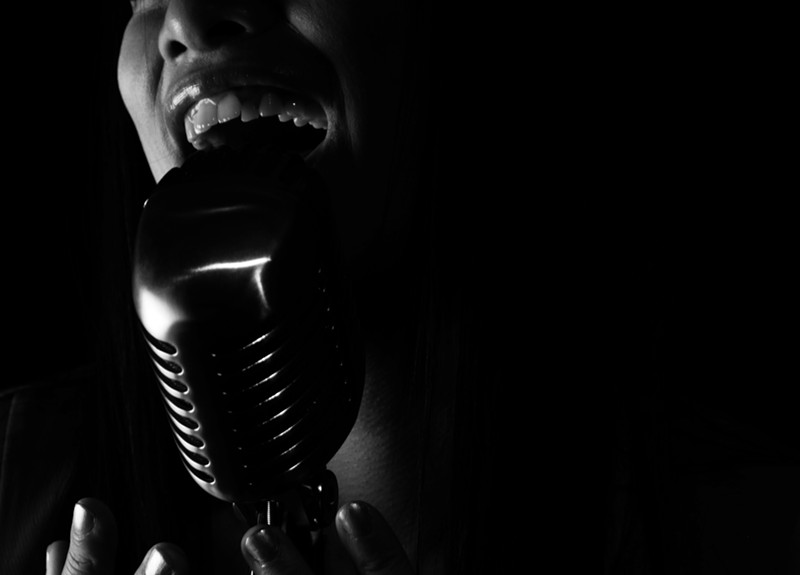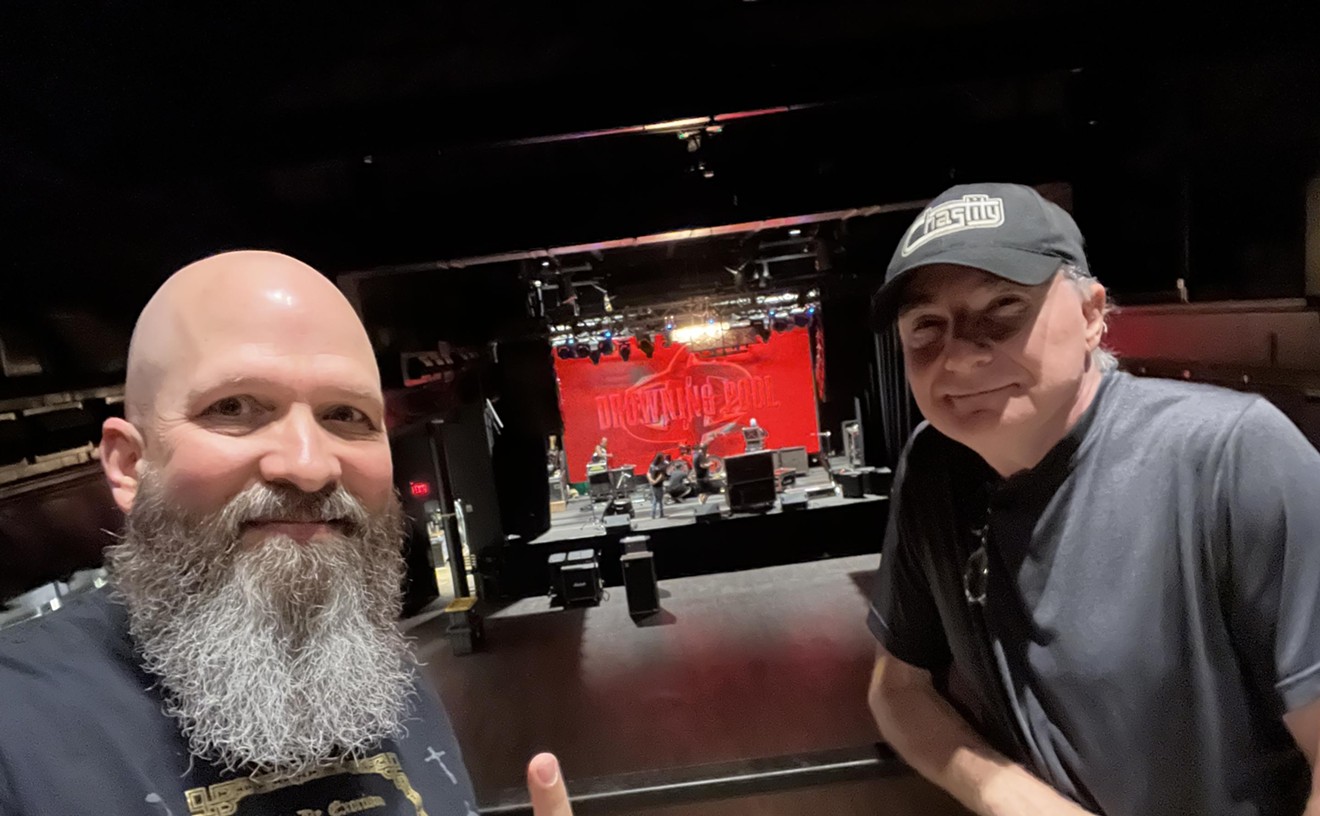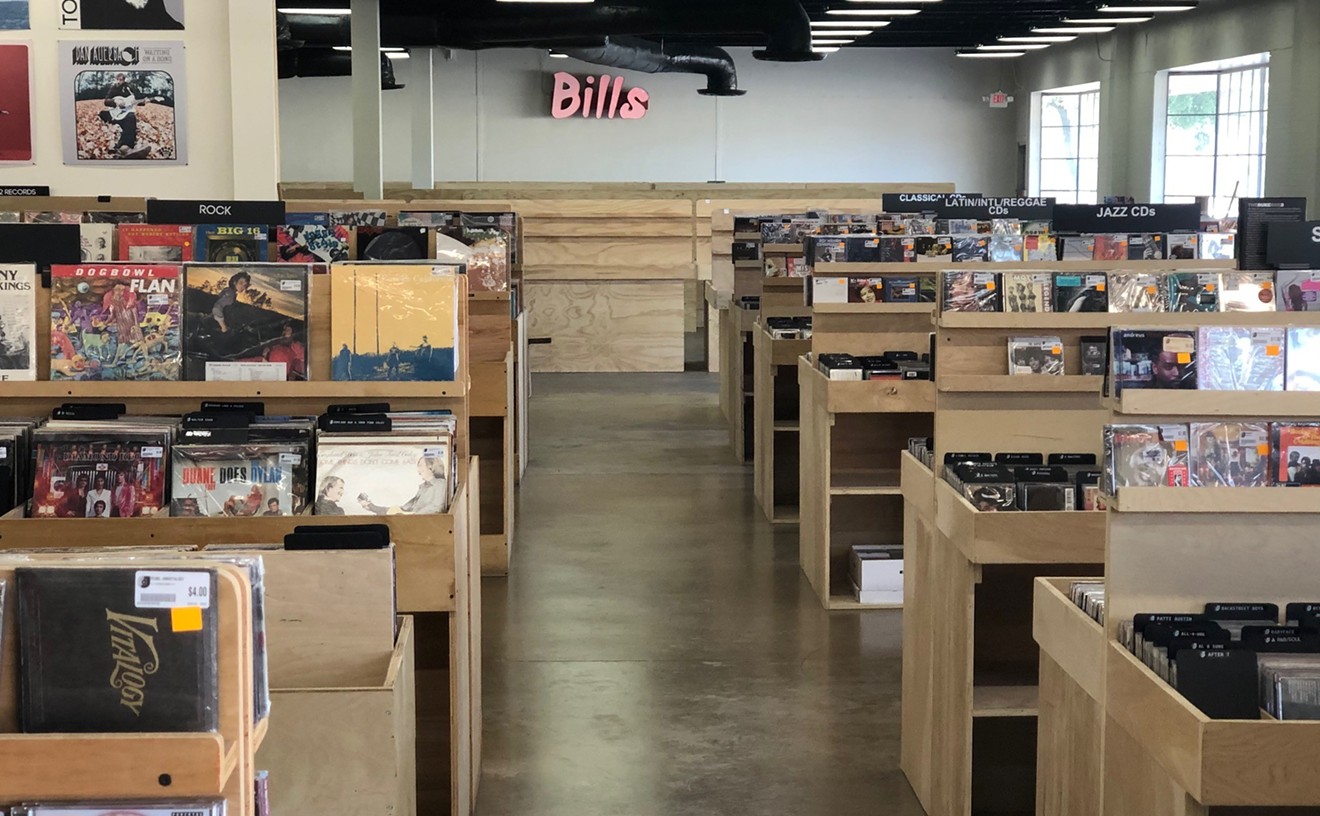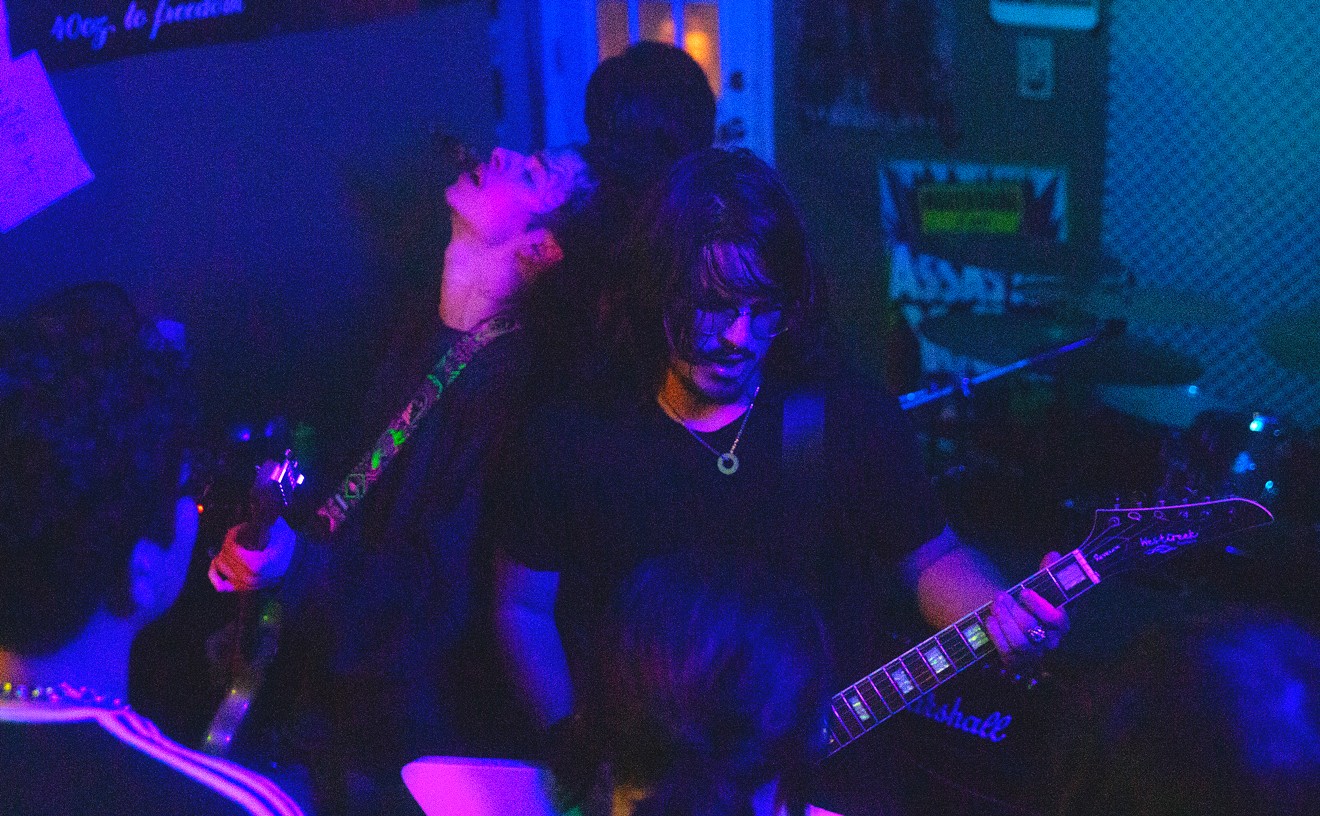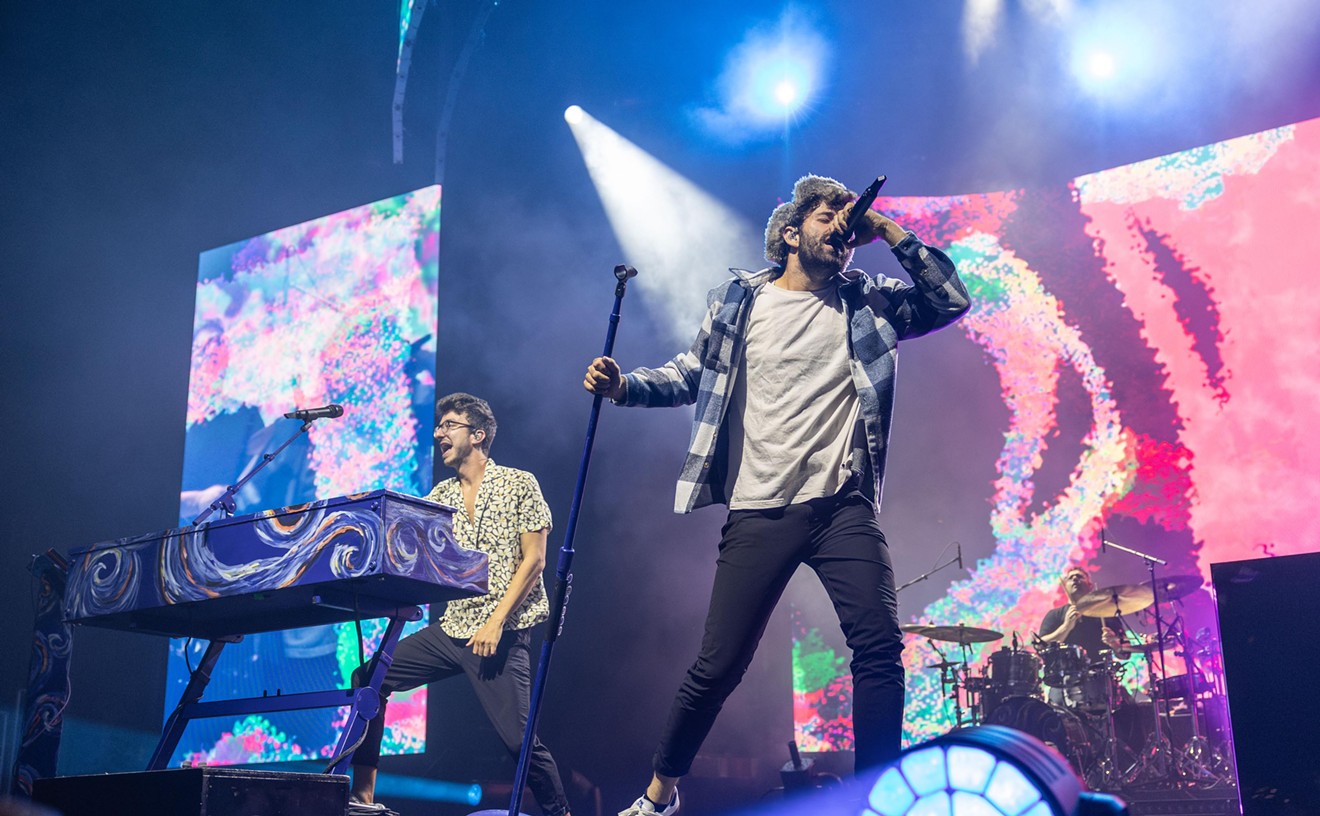In the last month, Texas restaurants began to reopen at 25% capacity, and that number will soon be 50%. While many people are reluctant to rejoin society, mindful of potential run-ins with COVID-19 carriers, others are willing to take the chance for a night out. The presence of live music doesn’t hurt when trying to lure crowds out of their caves, but as venues begin offering live music as an incentive for patrons, musicians have mixed feelings about whether they even want the gig.
Some are still eager to perform at public venues, like Trees Marie, who fronts the folk/Americana band The Heavy Hearts, one of the first local musicians to start making the live music circuit in the past few weeks.
Marie says that she’s been selective, however, about choosing shows and only agrees after conferring with her band. They play only if every member feels comfortable with the venue's approach to safety.
She has a list of five rules for her band, including, “No sharing microphones; all singers must supply their own mics,” and “All members of the band wear masks when not performing.”
There was a time in the pre-pandemic days when musician riders were eccentric — like Jack White’s demand for guacamole or Mariah Carey's need for "bendy" straws. But in 2020, all artist requests have to do with health and disease prevention.
Marie says promoters and venues are “vocal” about reinforcing rules for safety, though a quick glance through band's live videos often tells a different story.
Regardless, many Dallas venues have been diligent about spacing out tables and supplying employees with masks.
“Venues set up seating so large parties can’t congregate together; most limit to four people per table,” Marie says. “We limit our contact with the audience totally unless connecting with immediate friends or family that we know are actively isolating.”
As restaurants and bars suffered major losses while operating at a quarter of their dine-in capacity, or through a delivery-only model, budgets for live music have also changed. On the other hand, Marie says that her performing rates have stayed the same. She has a day job, and gives the highest pay rate to those in her band who are most affected, she says.
Marie says she also uses the money she makes from her live streams to help others.
“Many of my friends do not have income right now, so all of the proceeds from my live streams and tips throughout this entire period have been donated to my service industry friends," she says.
For Marie, the biggest motivation to keep performing is that inevitable force that's propelled generations of musicians: "It’s rock ‘n' roll," Marie says. "Nothing has ever stopped me from playing my music. I’ve played shows with my finger nearly cut off, with the flu, and even when I felt I couldn’t sing, I still did. I’ve sacrificed my entire life for my craft: relationships, alternative career paths, otherwise comfortable life plans, family, sleep, health. Nothing has ever stopped me from playing, and I don’t suppose anything ever will."
Guitarist Kevin Schaelling says he hasn’t been opposed to booking shows, but, he says, there haven’t been any.
"My friends that own bars and restaurants don't know if they can even open at 25% or even 50% capacity. ... It's just a little too little, a little too late." he says. "They have to pay rent, utilities, staff, cost of goods, et cetera, and aren't even sure if enough people are going to venture out at this point to make the costs of being open. So us musicians are kind of last on the totem pole as far as being paid."
Schaelling says he’s lost more than $1,000 per month since venues closed, and he’s “not even playing full time.” Some of his friends, he says, are playing outdoor gigs “for very reduced prices or just for tips.”"It’s rock ‘n' roll...Nothing has ever stopped me from playing my music." – Trees Marie
tweet this
For years, musicians have argued against the cliche that "exposure" to crowds or publicity is an acceptable offer of payment. Now, they have to weigh the worth of exposure in a global pandemic.
Sam Damask performs as Grand Commander as well as for-hire gigs as a bass player. Until recently, he also made a substantial part of his living running sound for top 40 bands.
Damask isn't interested in taking any gigs at the moment.
“It's not that it isn't safe; it's that we don't know if it is safe,” he says of performing in public. “Until testing ramps up, the safety issue is a giant question mark. It just isn't worth the risk.”
Damask says that given the current rates, his time would be better spent focusing on building his band’s online following. The pandemic made him reconsider other aspects of his career, too.
“I was getting tired of running sound, and the pandemic was the final nail in the coffin,” he says.
Damask has sympathy for those who need to keep playing in order to make ends meet, but he isn’t sure when he’ll resume performing.
“Unfortunately, we will not be playing live for quite some time,” he says. “When the number of cases starts getting smaller.”
Merik Gillette, a drummer who plays in several blues and jazz bands, says he would rather stick to watching online shows for now and isn’t interested in attending any live shows, let alone playing them.
“It doesn’t have the same appeal to me playing for small audiences and the concern of even counting cash tips that could be infected and drunk people wanting to talk between sets that may not get the 6-foot rule,” Gillette says.
He also says that having to wear personal protection gear adds to an already physically demanding job.
“The thought of playing drums with a mask on seems like swimming with clothes on — fine but not comfortable,” he says.
Gillette says he, too, would feel differently if he depended solely on gigs to get by, but that he's fortunate to have a day job and a wife whose business is doing well.
“If I was still single and without my own family, I’d consider playing, but until the numbers go down for a couple weeks, I’m not even going to restaurants,” he says. “Even getting a glass of water at a bar seems sketchy.”
Nick Snyder is a popular guitar player as a member of many local rock bands (like The Roomsounds) and his own, The Real Deal. We even went so far as to call him the next Stevie Ray Vaughan, despite Snyder’s protesting.“This just doesn’t feel like something that I can afford to be wrong about.” – Nick Snyder
tweet this
The guitarist says he has played “not one gig or rehearsal,” but finally accepted to play first gig in two months this Friday.
“I’m tentatively putting myself back out there," he says. "I still think there’s a lot to be worried about, though.”
Snyder says it was an easy decision to stay home as he has a girlfriend who’s immunocompromised and a mother who’s going through chemotherapy treatment.
His upcoming gig is with a Led Zeppelin cover band. Snyder says he'll remain cautious.
“I guess I’ll just try to stay as isolated as possible and just do what I’m there to do,” he says. “There’s not much else I think I can do, aside from wearing a mask, sanitizer and all that stuff.”
Even though he’s been collecting unemployment and his financial situation “hasn’t been rough for me at all,” Snyder says he’s “just as eager as anyone else to get back out there and do what I love.”
“I’ve felt torn about it ever since things started opening back up,” the musician says of performing. “This just doesn’t feel like something that I can afford to be wrong about.”
The Texas Rangers' Globe Life Field recently announced it would be hosting a series of drive-in concerts this summer, while Dallas native Marc Rebillet is preparing for five national drive-in tour dates. Other musicians have also performed at the popular "carbaret" variety show outside of Brizo in Richardson, but most gigs for the time being are of the traditional, pedestrians-only sort — which doesn't deter musicians like Marie.
"Music has always been a way to bring our message of positivity into the world," she says. "I don’t think right now is any different, so long as we can do it safely."

